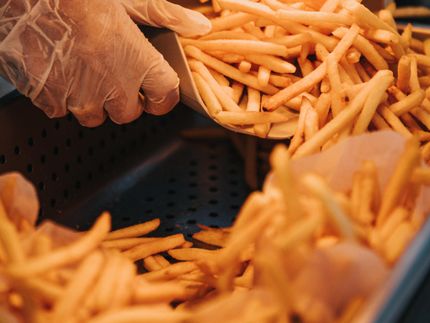German brewers brace themselves for a long lean period
First Corona, then the horrendously rising cost of living: people in Germany have less and less desire for beer. As a result, breweries and beer warehouses again sold less of the alcoholic beverage in the first half of the year than before. 4.2 billion liters meant a decline of 2.9 percent compared to the same period last year, as reported by the Federal Statistical Office on Tuesday. Only in the Corona year 2021, less beer was sold and drunk in a first half of the year - when pubs and public festivals remained largely closed.

Symbol image
computer generated picture
Far removed is the pre-crisis level, which was characterized only by a creeping decline in consumption, because the average increasingly older people in Germany drank less beer and wanted to eat healthier. In the first half of 2019, producers still sold around 375 million liters more beer than at present. More than 80 percent of production remains in the domestic market, while exports have been somewhat more stable in 2023.
The German Brewers Association gives reasons for the unexpectedly weak result at the half-year. In addition to the cool and mixed weather in the spring, inflation in particular is keeping consumers from spending. This is being felt by retailers, restaurants and breweries, says managing director Holger Eichele. The companies are only able to pass on a small part of the costs, which have exploded since the beginning of the Corona crisis, in the form of higher prices.
According to recent research by NielsenIQ market researchers, however, base prices for beer in supermarkets have risen recently. The old promotional price of 9.99 euros for a case of beer has largely disappeared from retail brochures.
Niklas Other from the industry trade journal "Inside" nevertheless sees the industry in the "long covid". After the Corona crisis, the companies are no longer really getting back on their feet. Despite the high frequency of their special offers, even the major brands have not been able to escape the negative trend, the trade journal reports. With the exception of the Warsteiner and Erdinger brands, the largest ten suppliers suffered sales losses.
"The Easter business was a total failure - consumers simply didn't grab it," reports Veltins boss Michael Huber.
This, he says, can no longer be made up for. Ultimately, he says, one has arrived at the new reality of the beer market. Every brewery is also facing enormous investments in more climate-friendly production facilities.
The Veltins manager also sees the disunited traffic light coalition as responsible for the meager consumer mood: "When inflation reaches into the wallet, the consumer automatically closes his wallet. If the state wants to grasp additionally into the savings like with the heating law, the households look for fundamental orientation, because future concerns grasp."
For brewers federation man Eichele and many enterprises a ray of hope remains: From the health trend already for years the alcohol-free kinds of beer, over which the Federal Office reported apart from the tax statistics, profit. Of them 474 million liters with a value of 396 million euros were produced in the entire past year, a share of more than seven percent of the total output. This means that the volume of non-alcoholic beer has almost doubled within ten years. Light beer mix drinks such as Radler grew by 24 percent during this period to 403 million liters last year.
In the restaurant trade, non-alcoholic varieties have already captured a share of 14 percent of all beer orders, reports the gastro-digital service provider Kollex in its Market Monitor for Beer Day (August 4). In addition, there is still a relatively constant share of around 5 percent of mixed beer drinks./ceb/DP/nas
Note: This article has been translated using a computer system without human intervention. LUMITOS offers these automatic translations to present a wider range of current news. Since this article has been translated with automatic translation, it is possible that it contains errors in vocabulary, syntax or grammar. The original article in German can be found here.

































































